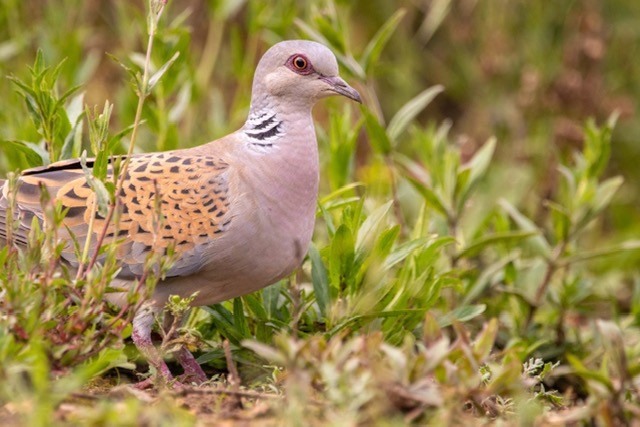The big five were on show in Kent on Friday.
Sitting eating excellent cheese and pickle sandwiches, I saw wood pigeon, stock dove, collared dove, feral pigeon and… turtle dove!

Lovely image of turtle dove courtesy of young Kent birder, Jack Farrar
All were feeding on a plot of land next the garden of a local resident, David Burridge, who had erected a hide to keep an eye on the local turtle dove population which…